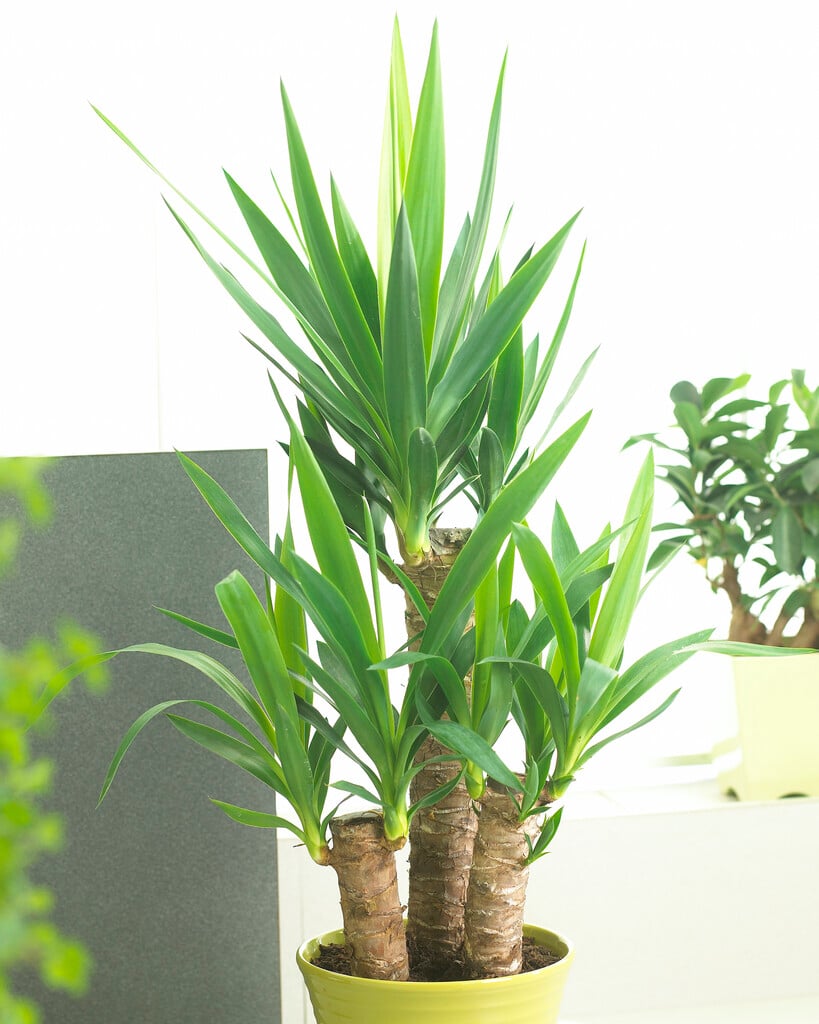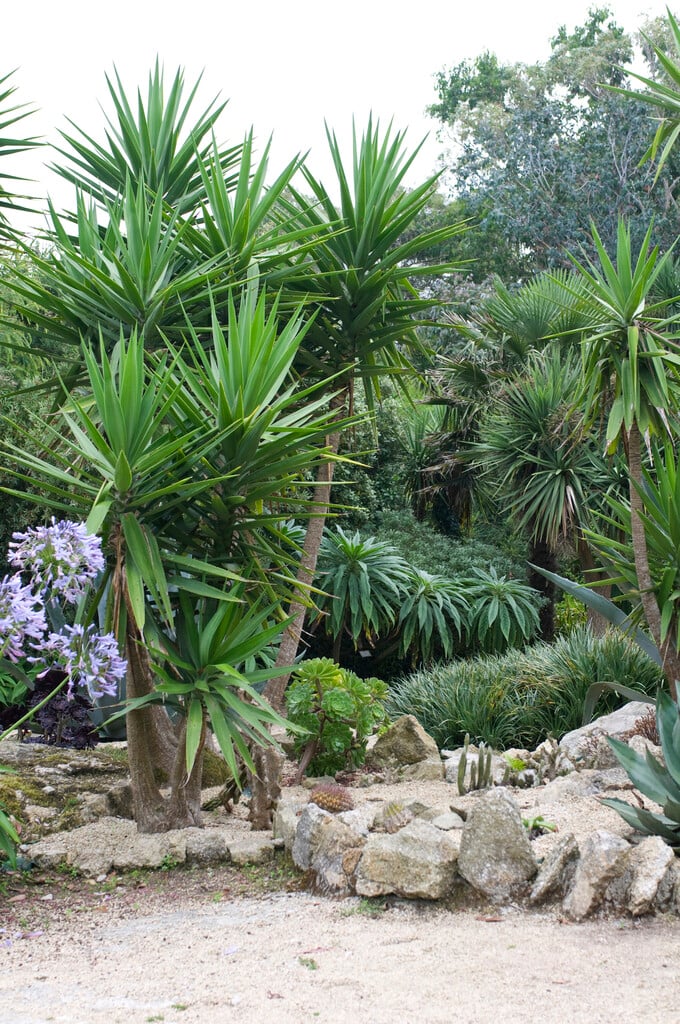Yucca elephantipes
spineless yucca
A large, upright shrub or small tree with several trunks growing from near ground level, sparsely branched. The stiff, leathery leaves are narrow, and up to 1m long. On mature plants flowering spikes up to 1m long appear in summer and autumn bearing large numbers of creamy-white, hanging flowers
Size
Ultimate height
8–12 metresTime to ultimate height
20–50 yearsUltimate spread
4–8 metresGrowing conditions
Moisture
Well–drainedpH
Acid, Alkaline, NeutralColour & scent
| Stem | Flower | Foliage | Fruit | |
| Spring | Green | |||
|---|---|---|---|---|
| Summer | Cream White | Green | ||
| Autumn | Cream White | Green | ||
| Winter | Green |
Position
- Full sun
Aspect
South–facing or West–facing
Exposure
ShelteredDrought resistance
Yes Hardiness
H2Botanical details
- Family
- Asparagaceae
- Native to GB / Ireland
- No
- Foliage
- Evergreen
- Habit
- Tufted
- Potentially harmful
- Skin allergen. Wear gloves and other protective equipment when handling Pets (dogs, cats): Harmful if eaten - for further information and contact numbers regarding pets, see the HTA guide to potentially harmful plants
- Genus
Yucca can be evergreen perennials, shrubs or trees, with dense or loose rosettes of stiff, sword-shaped leaves and tall panicles of bell-shaped flowers
- Name status
Not valid
- Plant range
- Mexico, Central America
How to grow
Cultivation
Under glass grow in peat-free, loam-based potting compost with added extra grit. Water freely while in active growth and apply a balanced liquid fertiliser monthly; water sparingly in winter. May can also be grown as a patio plant and moved to a frost-free location over winter
Propagation
Propagate by seed, sown in spring at 19-24°C. Flowers may need hand-pollination to set seed. Rooted suckers can be removed in spring or take root cuttings in winter
Suggested planting locations and garden types
- Mediterranean climate plants
- Architectural
- Patio and container plants
- Houseplants
- Sub-tropical
- Conservatory and greenhouse
Pruning
Pruning not normally needed, but damaged leaves and spent flower spikes can be removed as necessary in the spring
Pests
Diseases
May be susceptible to yucca leaf spot
Love gardening
Sign up to receive regular gardening tips, inspiration, offers and more
View our Privacy Policy
Get involved
The Royal Horticultural Society is the UK’s leading gardening charity. We aim to enrich everyone’s life through plants, and make the UK a greener and more beautiful place.

